Our Lille Travel Essentials lays out the essential information you need to help you plan your trip to one of the most popular destinations in Hauts-de-France. No matter how frequently you travel, some questions will always need answers: What’s the weather like? How can I get from Lille-Lesquin International Airport to my hotel? What currency and type of plug do I need?
We have all these answers plus other basic info about the best time to go, getting there, getting around, and a few useful travel tips. You’ll also learn about the most popular landmarks in Lille such as Grand Place, the Town Hall Belfry, and Wazemmes Market. It’s all compiled in this Lille Travel Essentials. After going through this short and easy-to-read guide, you’ll be a little more prepared to start your trip to Lille.
When is the best time to travel to Lille?

- Lille has a temperate oceanic climate with warm and humid summers and chilly winters. Average temperatures range between 4°C in winter and 18°C in summer.
- Rain is spread rather evenly throughout the year. It usually rains about 10 days per month in Lille. Expect snowfall between November and April.
- With average temperatures of over 16°C, June–September is the warmest period of the year. Extremely hot days are rare – the highest temperature recorded in Lille was 41.5°C.
- The peak season is June–August when you can expect higher hotel rates and more crowds. If you plan to visit Lille around this time of the year, it’s best to book far ahead.
- The best times to visit Lille are in May and September, just before and after the peak season. You’ll find good hotel deals, pleasant weather conditions, and lesser crowds at places of interest. Note that the largest event held in the city – the Lille Braderie (flea market) – is held in early September. You should book ahead if you plan to attend this extremely popular event.
Lille basics

- Plug type: C and E
- Electricity: 220-240 V
- Currency: Euro (€)
- International dialling code: +33 3
- Emergency telephone number: 112
Sjá einnig
- 10 Best Local Restaurants in Lille
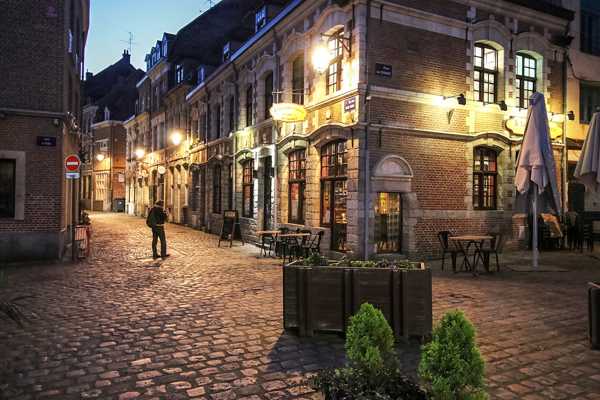
10 Best Local Restaurants in Lille
France - 10 Best Museums in Lille
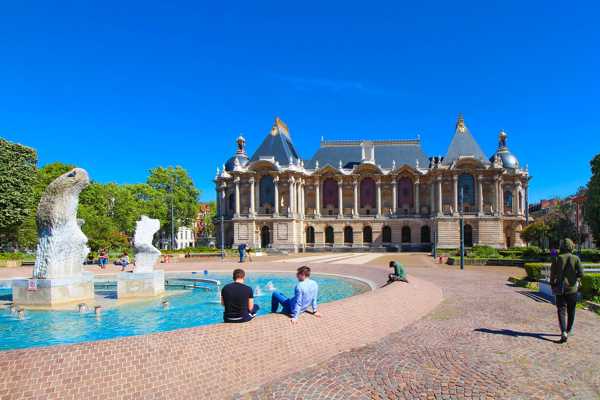
10 Best Museums in Lille
France - 10 Best Things to Do After Dinner in Lille

10 Best Things to Do After Dinner in Lille
France
How to get to my hotel in Lille?
Lille-Lesquin International Airport is the main gateway to Lille.

You can also get to Lille by high-speed train (TGV – Train à Grande Vitesse) from Paris Charles de Gaulle Airport. The high-speed Eurostar train also has a stop in Lille on its London-Paris route. If you’re on a budget, you can get to Lille by standard train from mostly anywhere in France as it’s cheaper than TGV.
If you travel by car, the A1 is the main highway serving Lille from Paris. The driving time between the 2 cities is about 2.5 hours. Lille is also served by the A25 from Dunkirk and Calais, the A23 from Valenciennes, the A27 from Brussels, and the A22 from Amsterdam.
You can also get to Lille by coach from London. The journey takes about 5.5 hours.
Lille-Lesquin International Airport (LIL)
Commonly called Lille Airport, Lille-Lesquin International Airport is a 10.5-km transfer south of Lille city centre. The average driving time between the airport and downtown Lille is usually about 15 minutes. The airport is served by regular flights from major airports in France and by seasonal flights from many cities across Europe and Maghreb.
Free Wi-Fi is available throughout LIL. Ground transport options for getting to your hotel are as follows:
- Taxi ranks can be found on the drop-off esplanade on the terminal forecourt (Level 2).
- The ride-sharing meeting point is at the passenger drop-off area.
- The air-conditioned and wheelchair-friendly Lille Airport Shuttle bus departs from the drop-off area, at the level of entrance door A, near the check-in desks and departures’ zone. The shuttle links the airport to a stop near the train station and the Lille Flandres metro/tram station in the city centre. It’s the cheapest way to be transferred.
- Major car rentals are just outside the Arrival Hall.
Lille-Europe Station
The Lille-Europe train station sits in the northeast of the city centre, on François Mitterrand Square. It’s served by Thalys, Eurostar, and TGV trains. Besides the ticket’s office, it’s also home to shops and cafés.
From here, you can get to your hotel by taxi, rideshare, metro, tram, or bus. The train station is 400 metres from the Lille Flandres metro/tram station. Car rental agencies are also available at the Lille-Europe station.
How to get around Lille?

Travel tips
Lille city centre covers an area of about 4 sq km. Walking is, therefore, a good option for exploring Old Lille and its vicinity. It’s home to landmarks such as the Old Stock Exchange building, the Catholic Church of the Sacred Heart of Jesus, and the Citadel of Lille, just to name a few. The city centre also features a great range of shopping, dining, and nightlife entertainment venues.
For longer distances, depending on your budget and preference, you can get around by taxi, rideshare, public transport, or rental car.
Taking a taxi in Lille
Taxis Lille Flandres (+33 (0)7 60 06 61 61), Taxis Lille Métropole (+33 (0)6 62 32 49 24), and Taxi Union Lille (+33 (0)3 20 06 06 06) are just a few of the taxi companies that operate in Lille. You can also easily find taxi lines in front of hotels and main attractions. It’s easy to hail one on the street.
Convenient yet rather expensive, getting around Lille by taxicab is not your best option if you’re on a budget, although a taxi ride may be your only option to get back to your hotel if you’re a night owl. Note that tipping for taxis in France is not necessary, but if you’re happy with your driver’s service, you can give an extra 5% or 10% of the fare. In France, all taxis are obliged to accept payment by Visa and MasterCard.
Uber is the main ride-sharing app used in Lille. Uber rates are slightly cheaper than standard taxicabs.
Travelling by public transports in Lille
Ilévia is the main public transport company operating in Lille. It runs 2 tramway lines, 2 metro lines, and over 60 bus lines. The system covers the entire metropole including the nearby towns of Roubaix and Tourcoing. Eight bus routes also run into Belgium – the border is 15 km west of Lille.
A wide range of ticketing options is available, from 1-way ticket to single- and multiple-day passes. A single ticket is valid for 1 hour on the metro, bus, and tram. You can buy tickets in the metro and tram stations as well as in over 160 stores (tobacco and paper shops). Public transport is free for children under 4 years when they’re accompanied by a paying adult.
Renting a car in Lille
Renting and driving a car is not the best idea for getting around Lille. The city centre is often congested and has limited and expensive parking spaces. Public transport is convenient enough to get to landmarks and attractions, and almost everything is within walking distance. Note that if you come from England with your own car, you can leave it at one of the 10 Parc-Relais (park and ride service) settled around the city. They are linked to the public transports network.
Cycling around Lille
Hiring a bicycle is a cool way of exploring Lille – when the weather allows. The Citadel, the Old Town, and Heron Park are great places to cycle around. The larger streets and boulevards feature biking lanes. You can find cycling trail maps online.
Ilévia also runs a bike-sharing scheme known as V’lille. It features over 220 stations in Lille and nearby towns. 1- and 7-day passes can be purchased in the stations and online. The first 30 minutes of use are free.
You can also hire a bike at rental companies like Le Grand Huit (+33 (0)6 08 25 74 91) and others. Note that you can bring a bicycle on board the tram.
What are the main annual events in Lille?

Paris–Roubaix bicycle road race
- Early April
- One of the oldest bicycle road races, held for the first time in 1896. The 1-day race is nicknamed ‘the Hell of the north’ due to its challenging cobblestones route segments.
- Where: Carrefour de l'Arbre
Lille Art Up
- June
- A contemporary art fair showcasing both galleries and artists who present works related to a theme that changes every year. Sculpture, architecture, and photography were the subjects of previous editions.
- Where: Lille Grand Palais
The Lille Braderie
- First Sunday of September
- The largest annual event held in Lille. It’s a gigantic flea market gathering about 10,000 exhibitors displaying their goods along 100 km of streets. Live music, mussels-French fries, and beer are part of the festivity.
- Where: Lille city centre
mynd frá Jérémy-Günther-Heinz Jähnick (CC BY-SA 3.0) breytt
What are the main landmarks in Lille?

The Grand Place
This grand square just northeast of the city centre is lined with a mix of historical and modern buildings housing bars, shops, and restaurants. It’s among the city’s popular meeting spots.
The Town Hall Belfry
This town hall dominates Lille’s skyline and offers a unique 360-degree panoramic view of the city and its surroundings on clear days. The UNESCO World Heritage site was built in the early 20th century in a classic Flemish style.
The Old Stock Exchange building
Made of 24 little houses enclosing an arched courtyard, the Old Stock Exchange building is a splendid example of 17th-century Flemish Renaissance style. The lively Historical Monument hosts a second-hand books market, florists’ stalls, and chess players’ tables.
Wazemmes Market
Settled in a large red-brick building typical of northern French architecture, the Marché de Wazemmes is one of the most popular markets in Lille. It hosts a mix of stalls selling local and exotic products as well as street food and refreshments.
mynd frá Velvet (CC BY-SA 3.0) breytt
Þessi grein inniheldur skoðanir ritstjórnarteymis Go Guides. Hotels.com greiðir höfundum fyrir skrif sem birtast á þessari vefsíðu; slíkar greiðslur geta innihaldið ferðalög og annan kostnað.
Byrjaðu að skipuleggja ferðina þína
Lille - hvar er gott að gista?

Residhotel Lille Vauban
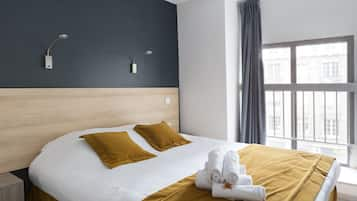
Lille City Hotel
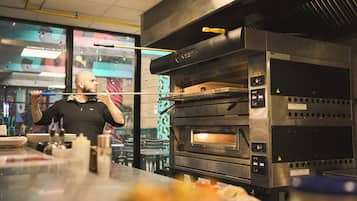
JOST Hôtel Lille Centre
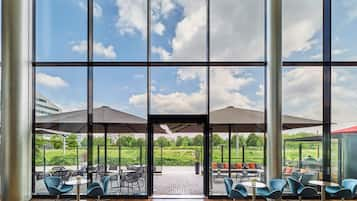
Hôtel Barrière Lille
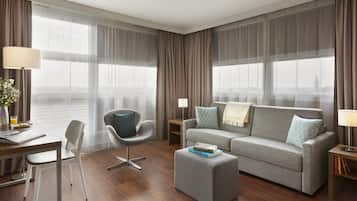
Citadines City Centre Lille
Tengdar greinar
- 10 Best Local Restaurants in Lille

10 Best Local Restaurants in Lille
France - 10 Best Museums in Lille

10 Best Museums in Lille
France - 10 Best Things to Do After Dinner in Lille

10 Best Things to Do After Dinner in Lille
France - 10 Best Local Dishes from Lille

10 Best Local Dishes from Lille
France - 8 Best Family Things to Do in Lille
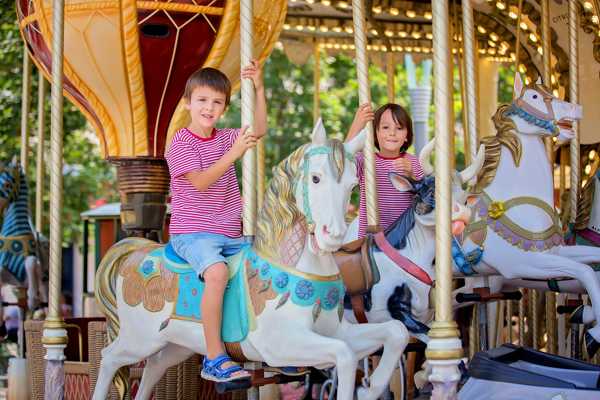
8 Best Family Things to Do in Lille
France - 10 Things to Do in Lille on a Small Budget
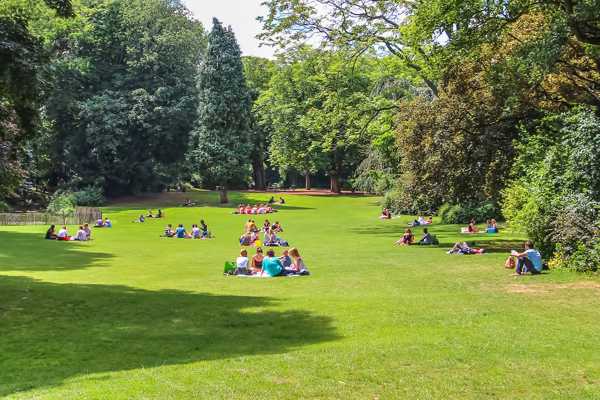
10 Things to Do in Lille on a Small Budget
France - 10 Great Restaurants in Lille
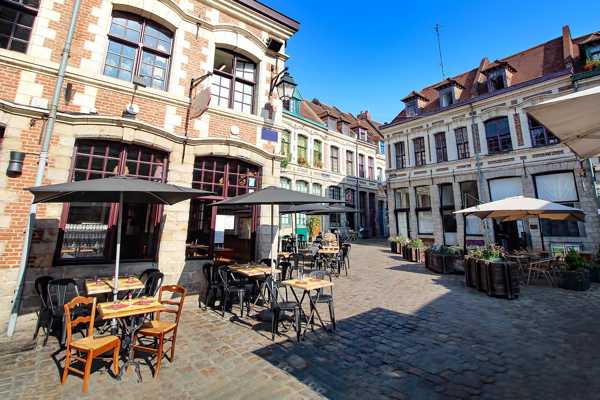
10 Great Restaurants in Lille
France - 9 Best Markets in Lille

9 Best Markets in Lille
France
